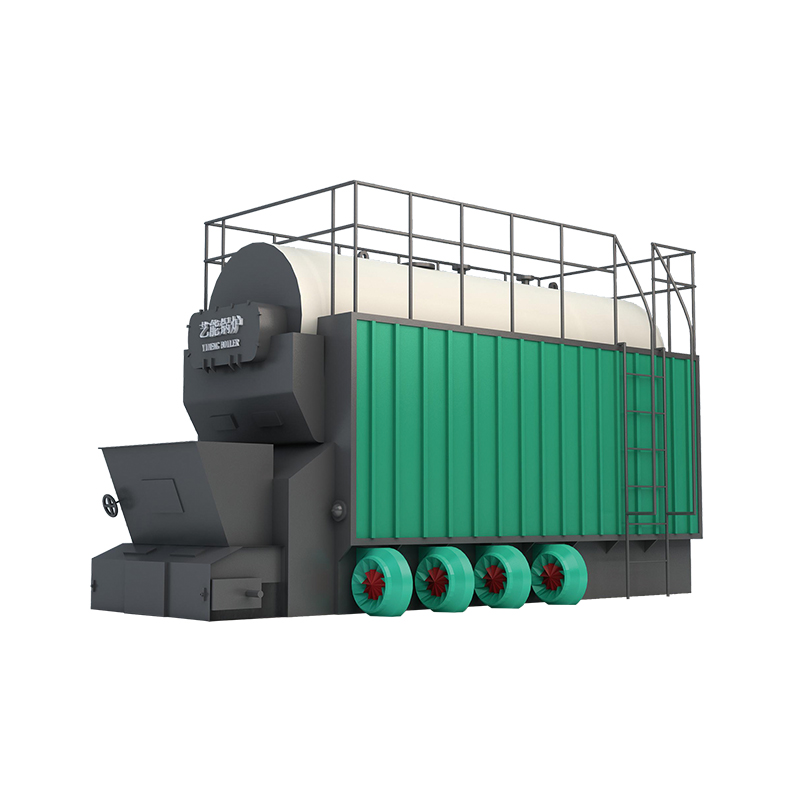seven telltale signs your boiler needs to be replaced
It is not uncommon for property owners or facility managers to wait until a boiler completely breaks down before replacing the unit. To make things worse, these types of failures happen when there is real need for heat (for instance, a very cold day) and since the failure is unexpected, there are rarely emergency funds allocated to fix the problem.
Suddenly having to shell out unplanned capital to replace a boiler with avoidable damage is no fun. The first tip to helping owners avoid this is to implement a regular maintenance and inspection program with a qualified contractor. These inspections of the boiler system should occur at least once a year. In order to ensure the owners maintain their full-warranty, be sure to recommend Genuine Weil-McLain Parts.
Skid mounted thermal oil boiler

During the review, be sure to include the following:
• Make sure the shut off valves function properly. Check for water leakage. If there is any sign of potential leakage, have a leak test performed.
• Check the refractory for integrity to ensure it is properly protecting critical portions of the boiler. Check for broken pieces or even cracks, and repair if needed.
• Check the functioning of controls, safety devices, and indicators, including the low-water cutoff devices and regulators, pressure gauge, safety valves, and the pressure release valve. Any that are not working properly puts the boiler at risk of major structural damage.
• Check your fuel feed system and burners, particularly if your boilers use liquid fuels. They should be inspected and cleaned. Not doing so will result in inefficient combustion and heat transfer, resulting in higher fuel costs and less effective heating. Related to this is to clean or replace any fuel filters so as to maintain effective fuel flow, without which damage could occur.
• Be sure to clean boiler heat transfer surfaces regularly to remove buildup. In the case of an oil-fired boiler, there may be soot residue. Soot can act as an insulator which cuts down on the efficiency of the heat transfer between combustion gas and steam or hot water generation.
When inspecting your boiler, remember to look for any signs of corrosion, overheating, or erosion, as well as any leaks from the boiler or external piping. These items can be signs that the boiler is not working properly and should be repaired immediately.
In the event that you’ve missed a few regular annual inspections, here are seven telltale signs that it’s time to replace your boiler:
- Age: Condensing boilers haven’t been on the market for a long time and therefore it is hard to predict their longevity. With proper maintenance, they are expected to last at least 15 years or longer. Weil-McLain boilers come with a 10 year non-prorated heat exchanger warranty for commercial boilers, 12 year non-prorated heat exchanger warranty for residential boilers and two year parts warranty for both categories. Cast iron boilers, on the other hand, should be considered for replacement if they have been operating for more than 20 or 30 years. Some of these boilers can last even up to 50 years or longer, but even with decent annual maintenance, their efficiencies are much lower than today’s cast iron boilers. Often times, the energy savings from a new boiler replacement alone practically pays for the cost itself within a year or two. Weil-McLain cast-iron residential boilers come with a 20 year non-prorated heat exchanger warranty and two year parts warranty.
- Energy Expenditures: Be mindful of any increases in energy expenses. If energy bills are slowly rising it may be due not only to the age of the boiler but also due to increasing costs of the boiler maintenance. If a boiler requires constant servicing, the system has likely become less efficient. One should consider upgrading to a more reliable, durable unit such as a cast iron unit. Additionally, a noisy unit also may be a sign that it’s time for an upgrade.
- Increased frequency of failures: This is a clear indicator that the unit is due for either a major overhaul or replacement.
- Discoloration: Yellow flames on gas burners and black soot on oil boilers indicate that the fuel is not burning properly and is creating carbon monoxide. It is highly recommended that property owners install carbon monoxide detectors.
- Leaks: A boiler that leaks or requires additional make-up water could be nearing the end of its lifecycle. By replacing the existing unit, the building manager or owner can avoid costly floods and critical boiler or property damage.
- Comfort: If you notice that some rooms in a building are too hot or too cold or have varying temperatures throughout the day, it’s possible that the unit and its controls are no longer effective or the facility may benefit from more efficient controls.
- Quality: If your boiler isn’t a Weil-McLain, it may be time to upgrade with our innovative product line. From the longevity of a standard efficiency boiler to the long-term energy savings from a high efficiency boiler, Weil-McLain offers reliable, effective and quality solutions for any application.
Even if a boiler isn’t immediately failing, upgrading to a newer system can offer significant benefits. By planning the change, rather than facing an emergency in the throes of winter, building owners and managers can realize energy savings, a more comfortable facility, tenant retention, improved heating reliability and increased property value.
-
Smart Heating with Packaged BoilersNewsAug.13,2025
-
Smart Heating with Industrial Electric Boiler ManufacturersNewsAug.13,2025
-
Efficient Heating with Coal Fired Steam Boiler for SaleNewsAug.13,2025
-
Efficient Energy with Waste Heat Recovery BoilerNewsAug.13,2025
-
Efficient Boilers for Every NeedNewsAug.13,2025
-
Coal Fired Boilers for Sale: Efficient Heating Solutions for Every IndustryNewsAug.13,2025

